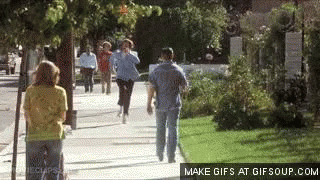Slow Growth (A PhD story)
The PhD Enigma
There are a lot of wonderful sources for humor regarding the life of a PhD student. PhD Comics and Lego Grad Student are two great examples. Like the inside jokes you share with your friends from high school you “just had to be there.” The pursuit of a PhD is one of those somewhat unique experiences that few can truly relate to unless they have been through it themselves. The resultant isolation is a double-edged sword since it makes it hard to describe our experiences to others and can generate a sense of superiority since no one else “understands.”
I don’t think there is any single element of my PhD progress so far that is “unique” or hasn’t already become a meme somewhere in the cloud. One objective of the PhD is to pursue and produce original work. So instead of filling this post with memes like this:
I’ll try to make comparisons of my experiences with some that might be more universal once removed from the veil of academia. The intent is not to complain about my experiences but simply to share them. I’m already separated from most of my friends and family by the contiguous US and putting some of these stories out there makes me feel at least a little closer to them all on an emotional level.
Slow Start
I was ready to hit the ground running when I first came to grad school for my PhD in the fall of 2015. By the end of the year I had decided on which lab I would join. The project I joined was working on a process to develop a low-cost method for producing solar cell materials. We were trying to take the project to the next phase, which would involve designing a new piece of equipment. Due to the timing of funding for the project and the projects my colleagues were already working on I ended up being the point person for this project. We had some fabulous collaborators who contributed a great deal to the design, controls, and installation of that equipment so I was fortunate not to be alone in the process. However, the result was a working system almost 1.5 years after I had “started” my PhD. The consequence is I had little to no data at that point, which is kind of important to publish a paper.
This is what I felt like once I was up and running:
 However this is what I needed to do:
However this is what I needed to do:

I was in an odd position, having a lot of energy to get something started but having very little idea of where to actually start and what the best route will be. In the past I’ve often erred on the side of caution. I usually try to get as much information as I can about something before making a decision. While that might lead to a “good” decision it is rarely a quick decision. My advisor tried to impress on me that I should just try a few things to see what happens. Reckless as this initially seemed to me I tried to throw caution to the wind and get things going. I should have known that even that approach would not be as easy as it sounded. The first few attempts to grow the films we wanted to showed no substantial results and often brought us back to square one.

I’ve been doing “science” for a long time; I have lots of experiences and skills to help me but there is always more to learn and ways to do things better. Another piece of advice my advisor and committee chair have said is, “Make sure your experiment is testing what you think it is testing. If its not, you need to change the experiment.” Ultimately, this led to many more tests to try and better understand what was going on in our system. While some questions may remain unanswered thus far, we do have sufficient data to publish a paper. I consider this as the equivalent to finishing a “project” you’ve been working on for months/years and can finally check it off your list.

Next Steps
Through the course of executing experiments for the first paper there are many threads that spin off of that, some of which will help lead to future papers and ultimately my dissertation. Now that I have a better idea of what I am doing I also hope I will be able to execute the experiments, analysis, and writing more efficiently. The current goal is to earn my PhD by Summer/Fall of 2019. I have a plan to get there, but I won’t commit to the percentage of that plan quite yet.



